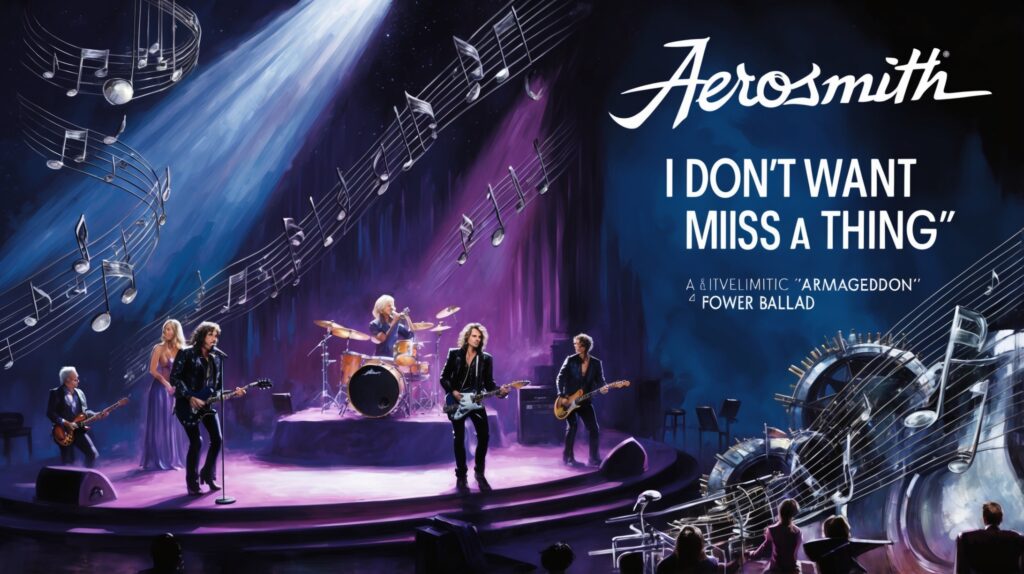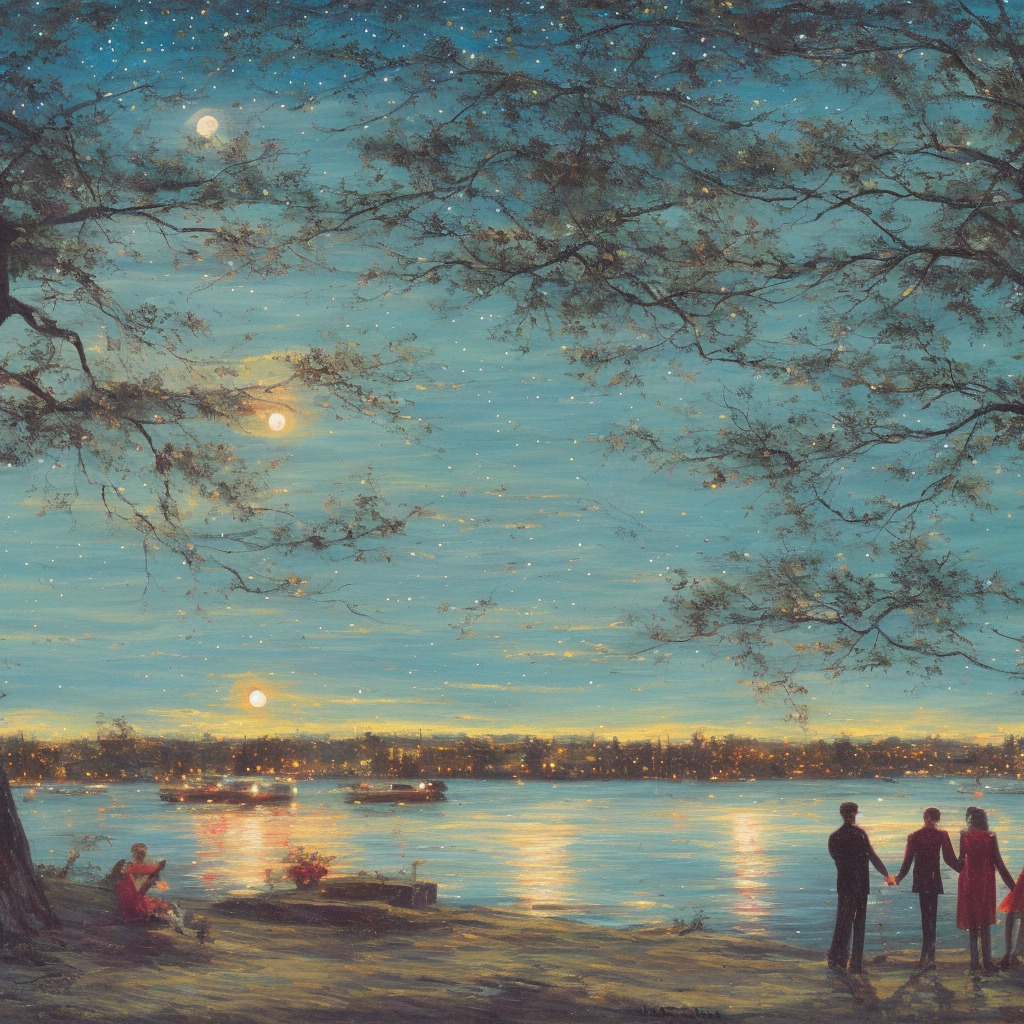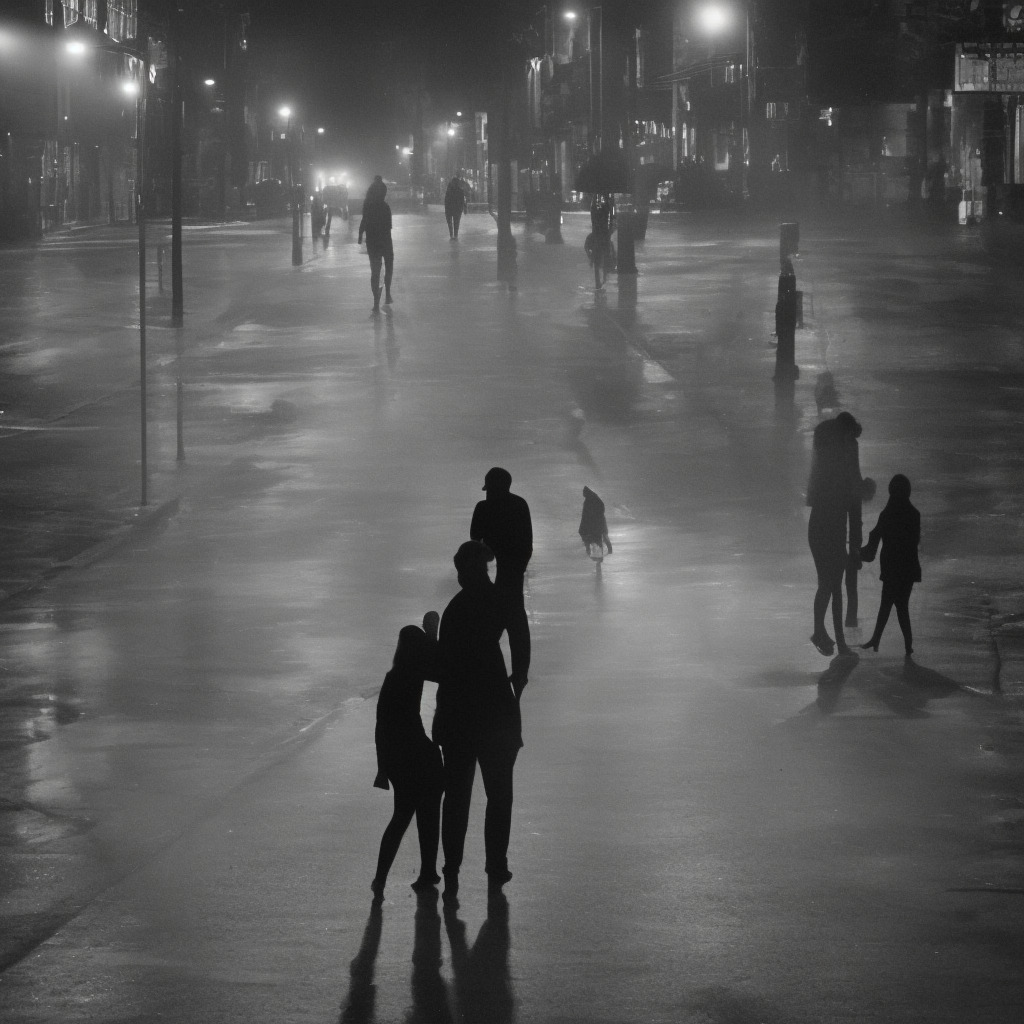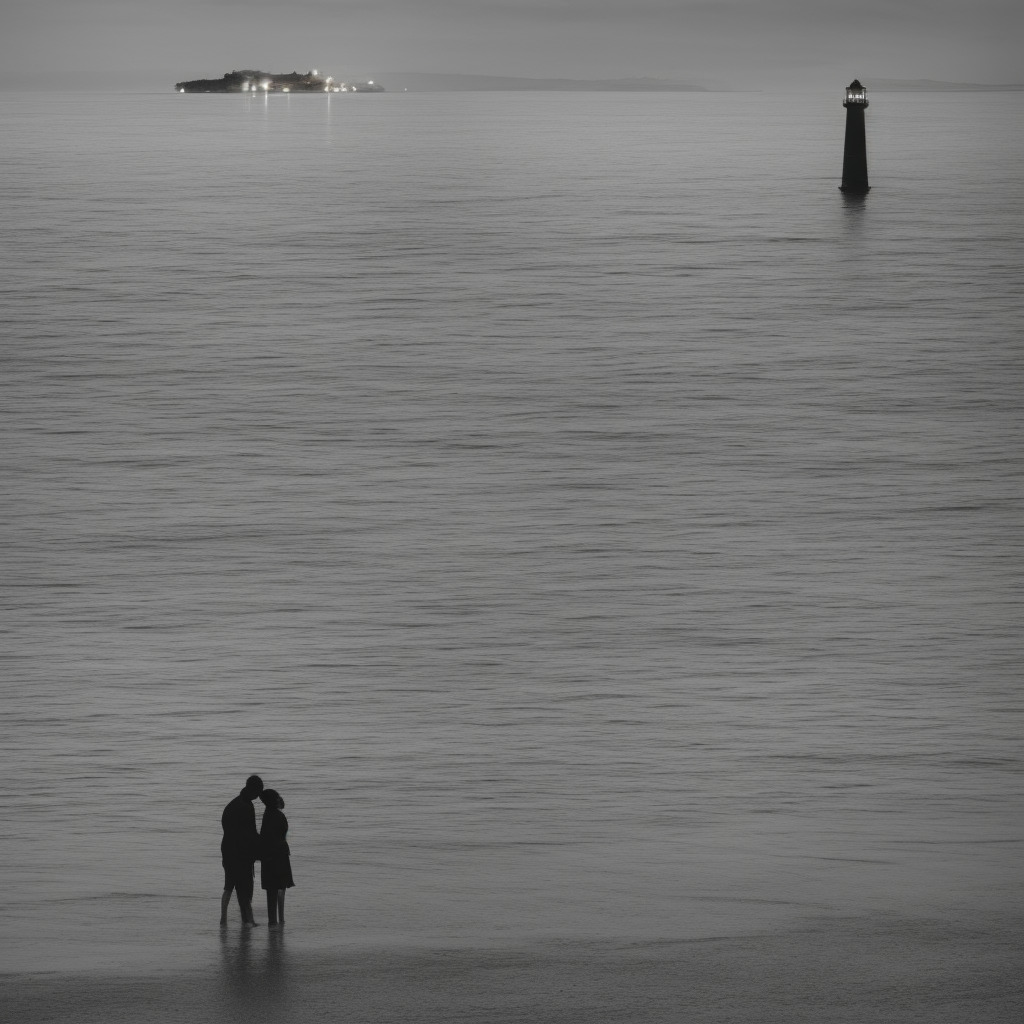Aerosmith | I Don’t Want to Miss a Thing
A Pioneering Force in Rock: Aerosmith Behind the Ballad
Discover the band’s journey from hard rock pioneers to the melodic heart of pop ballads, showcasing Aerosmith’s adaptability and enduring legacy.
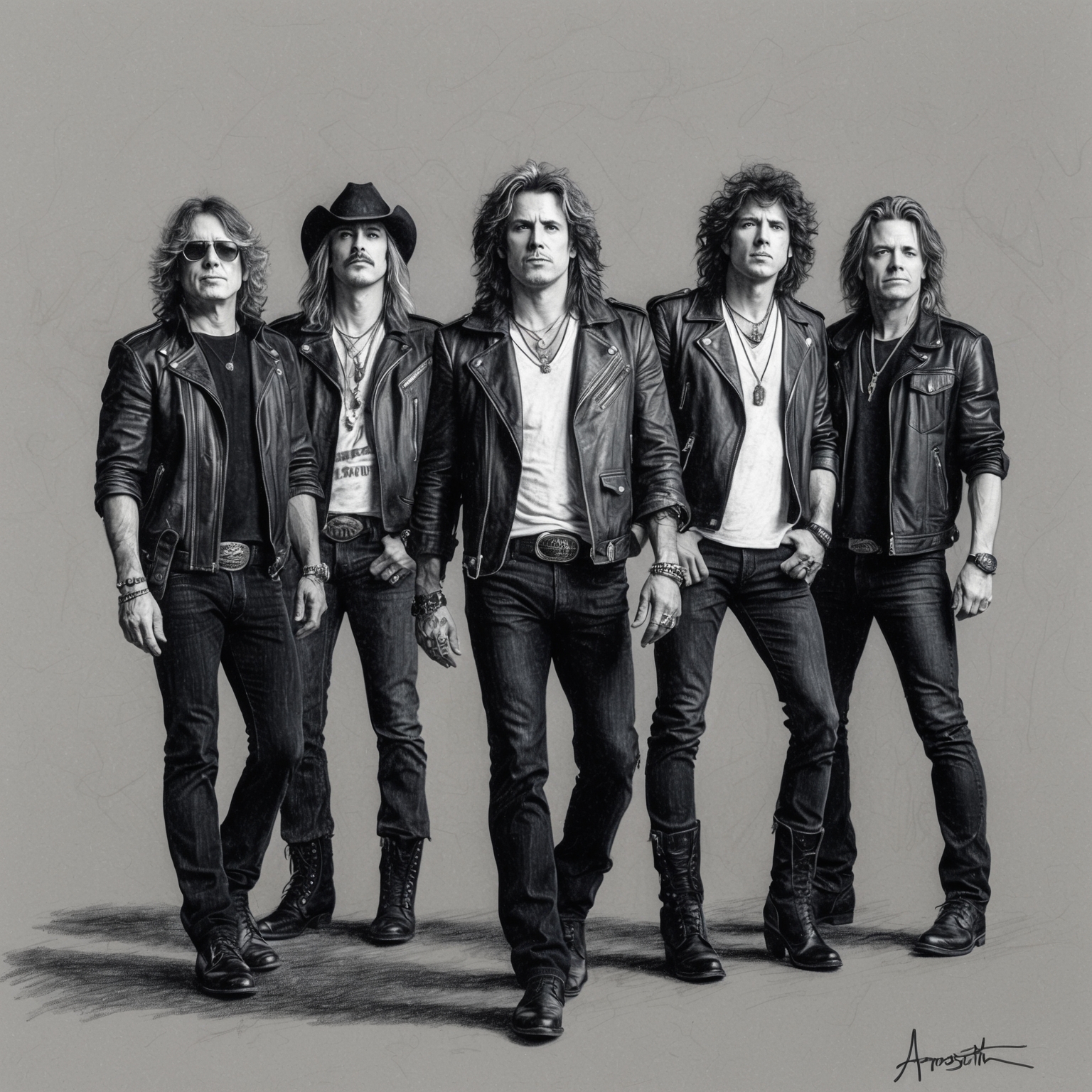
Aerosmith, often dubbed the ‘Bad Boys from Boston’, have undeniably secured their place in rock history with their unique blend of hard rock and blues-infused sound. Formed in 1970, the band is comprised of Steven Tyler on vocals, Joe Perry on guitar, Brad Whitford also on guitar, Tom Hamilton on bass, and Joey Kramer on drums. Together, they have carved out a legacy as one of America’s greatest rock bands, demonstrating a remarkable ability to evolve with the times. “I Don’t Want to Miss a Thing” marked a high point in Aerosmith’s storied career, propelling them into the pop mainstream with its sweeping orchestration and heartfelt lyrics.
The release of “I Don’t Want to Miss a Thing” in 1998 showcased a different side of Aerosmith, one that embraced the power ballad genre while still adhering to their rock roots. At this time, the band was riding high on the success of their previous albums and had already become known for their dynamic performances and the flamboyant theatricality of lead singer Steven Tyler. This song added a new dimension to their reputation, drawing in a wider audience and introducing Aerosmith to an entirely new generation.
Throughout their career, Aerosmith has demonstrated a capacity for collaboration and reinvention. The creation of “I Don’t Want to Miss a Thing” involved working closely with songwriter Diane Warren, whose expertise in penning emotive ballads was instrumental in crafting a song that would resonate universally. Initially met with skepticism by some long-time fans who were surprised by this softer entry into their discography, the song quickly won accolades and became integral to the band’s repertoire. This keen sense of adaptability has allowed Aerosmith to maintain relevance across decades, securing their place in both rock and popular music.
Exploring the Genius Behind the Melodies
Discover how Diane Warren’s songwriting brilliance brought life to Aerosmith’s “I Don’t Want to Miss a Thing,” blending her signature emotional depth with rock power.

The song “I Don’t Want to Miss a Thing” by Aerosmith is perhaps one of the most iconic power ballads to emerge from the 1990s. However, behind the rockstar facade of Aerosmith, lies the prowess of a talented composer who played a pivotal role in bringing this track to life—Diane Warren. Known for her remarkable ability to pen hits across genres, Warren’s contribution to the song was instrumental in shaping its emotional and melodic core.
Born in California, Diane Warren embarked on her musical journey at an early age, and her dedication to songwriting led her to become one of the most prolific and well-respected songwriters in the music industry. Her career began in the late 1980s, and over the years, her distinctive style influenced numerous hits for various artists. Warren is known for her heartfelt ballads that often capture deep emotions and universal human experiences, which certainly shines through in “I Don’t Want to Miss a Thing.”
Warren’s musical style is versatile, yet she is renowned for her pop and rock ballads that seamlessly blend lyrical substance with memorable, emotive melodies. Her influences are wide-ranging, drawing from classic rock, pop, and soul music, which she artistically melds to create timeless tunes. Her ability to craft songs that resonate with both artists and audiences has made her a sought-after composer, garnering numerous Grammy nominations and other accolades throughout her illustrious career.
Collaborations have been a key component of Warren’s success, and her partnership with Aerosmith for “I Don’t Want to Miss a Thing” was no different. She managed to tailor her composition to align perfectly with Steven Tyler’s vocal prowess and emotional delivery, ensuring the song not only matched but elevated Aerosmith’s dynamic style. Warren’s role in crafting the song’s lush orchestration and powerful hooks contributed significantly to its commercial success, making it a standout track in both her and Aerosmith’s careers.
A Resonating Success Beyond Charts
From Oscars to Grammys, “I Don’t Want to Miss a Thing” earned prestigious nominations, notable covers, and cultural resonance.

When it comes to accolades, “I Don’t Want to Miss a Thing” stands as a landmark in Aerosmith’s illustrious career. The song was nominated for an Academy Award for Best Original Song in 1999, as it was prominently featured in the blockbuster film Armageddon. Although it did not clinch the Oscar, the nomination itself stands as a testament to the song’s widespread acclaim and cultural significance.
Further cementing its prestigious status, the song was also nominated for a Grammy Award for Best Pop Performance by a Duo or Group with Vocal in the same year. While Grammy gold eluded them for this track, Aerosmith continues to hold a significant place in Grammy history, thanks in part to impactful songs like this one.
Various artists have been inspired to cover this powerful ballad, adding their own unique spins while preserving its emotional core. Country artist Mark Chesnutt reached success with his own version, which became a crossover hit on the country charts. Beyond chart success, “I Don’t Want to Miss a Thing” has graced numerous compilations and is a popular choice for TV shows, commercials, and even video games, further highlighting its pervasive influence in popular culture.
Breaking Records and Winning Hearts: Chart Success of “I Don’t Want to Miss a Thing”
Explore the chart success of “I Don’t Want to Miss a Thing” by Aerosmith, the band’s first number-one hit, its global impact, and the strategic marketing that propelled its fame.
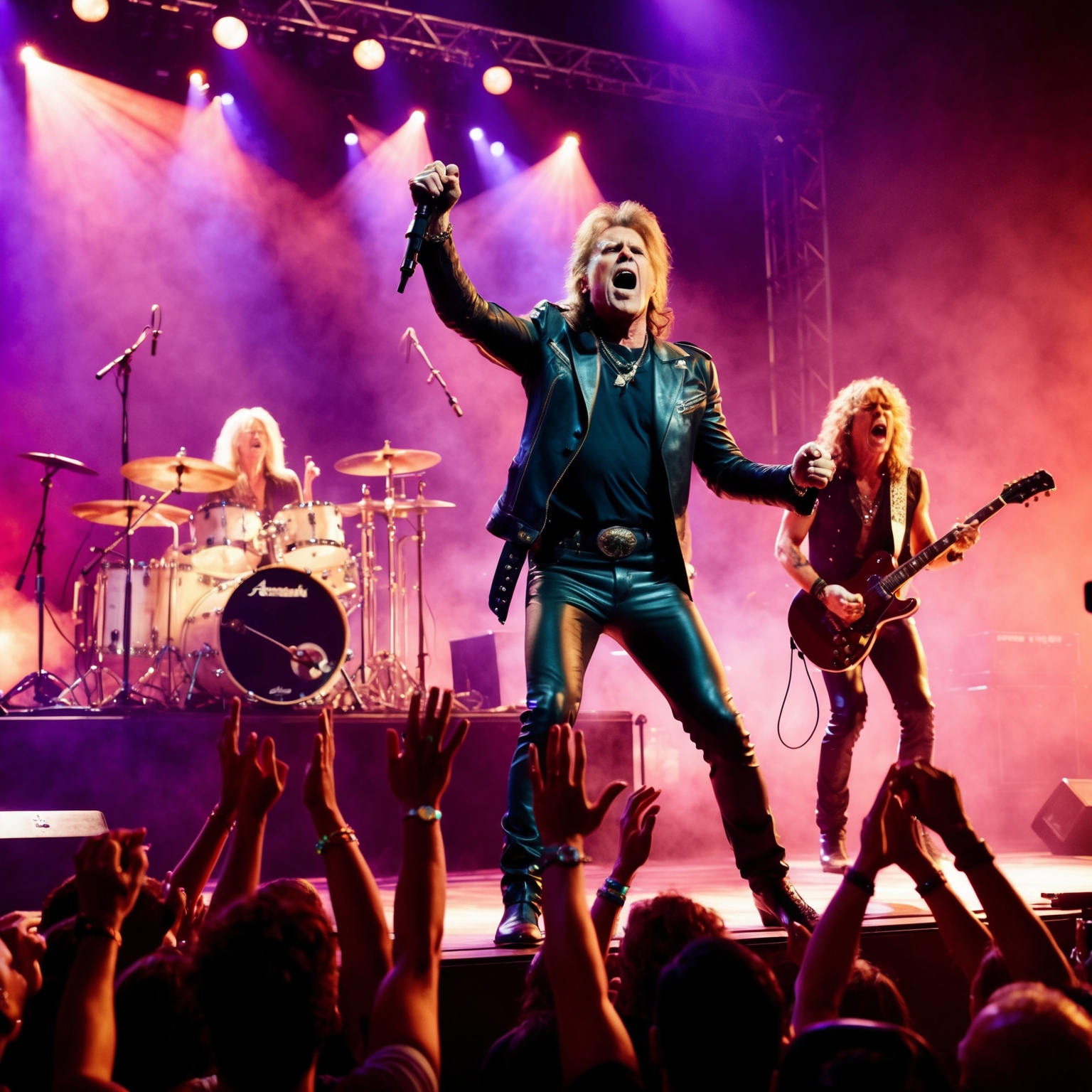
Upon its release on August 18, 1998, “I Don’t Want to Miss a Thing” catapulted Aerosmith to new levels of success, marking a significant chapter in the band’s storied career. The song debuted at number one on the Billboard Hot 100 chart, an unprecedented achievement for the band, as it became their first and only chart-topping single in the United States. This milestone was particularly impressive considering Aerosmith’s long and illustrious history, marking it as a highlight in their decades-long career.
This chart-topping triumph held strong across the globe, as the power ballad resonated with international audiences. It reached the top of the charts in countries like Australia, Norway, Austria, and Ireland, among others. Remarkably, the song’s appeal extended beyond traditional rock listeners, bringing Aerosmith’s music to a wider audience spectrum and further solidifying their status as rock legends. In comparison to other tracks at the time, “I Don’t Want to Miss a Thing” dominated the airwaves and shaped the musical landscape of the late ’90s.
The song’s release was backed by a formidable marketing campaign, tying in with the blockbuster film “Armageddon,” which featured the track prominently. This strategic collaboration ensured maximum visibility, while appealing to both music and movie lovers. Additionally, live performances, including a memorable rendition at the Academy Awards, amplified its popularity, creating an enduring legacy that remains impactful today. The cultural influence of “I Don’t Want to Miss a Thing” is indisputable; it not only defined an era but also became an anthem of romantic sentiment cherished across generations.
A Cinematic Love Affair: The Music Video for ‘I Don’t Want to Miss a Thing’
The music video for ‘I Don’t Want to Miss a Thing’ by Aerosmith melds passionate performances with cinematic scenes from ‘Armageddon,’ significantly boosting the song’s appeal and commercial success.

A Cinematic Love Affair: The Music Video for ‘I Don’t Want to Miss a Thing’
The music video for Aerosmith’s heart-wrenching ballad, “I Don’t Want to Miss a Thing,” is a poignant visual experience that complements the song’s powerful emotions. Directed by Francis Lawrence, who would later become known for his work on feature films such as “The Hunger Games” series, the video intertwines scenes from the 1998 blockbuster movie “Armageddon” with Aerosmith’s passionate performance, crafting a narrative that enhances the emotional gravitas of both the song and the film.
Set in a dimly-lit recording studio, the video features the band performing the song with intense energy, while clips from “Armageddon” are intercut, emphasizing a sense of impending peril and longing. This blend of dramatic cinematic footage with Aerosmith’s electrifying live presence provides a dynamic visual narrative that enriches the viewer’s overall experience, making the song resonate on a deeper level. Particularly memorable are the scenes of Liv Tyler, lead singer Steven Tyler’s daughter, who not only stars in the movie but also adds a personal layer to the video’s emotional storytelling.
The music video contributed significantly to the song’s immense popularity, as it reached audiences worldwide, riding on the success of the film. Critics appreciated the video’s capability to convey the intricate emotions of longing and desire tied closely with the film’s emotionally charged plot. The tight synergy between the song and movie footage captivated viewers and demonstrated the powerful impact that a well-executed music video can have in enhancing the narrative of a song. The collaboration between Aerosmith and the filmmakers resulted in a visual spectacle that remains a standout moment in the rock band’s celebrated career.
Deconstructing the Sonic Architecture of ‘I Don’t Want to Miss a Thing’
Explore the technical brilliance of Aerosmith’s ‘I Don’t Want to Miss a Thing,’ from its key signature to melodic and harmonic structures, along with insights into the recording process.
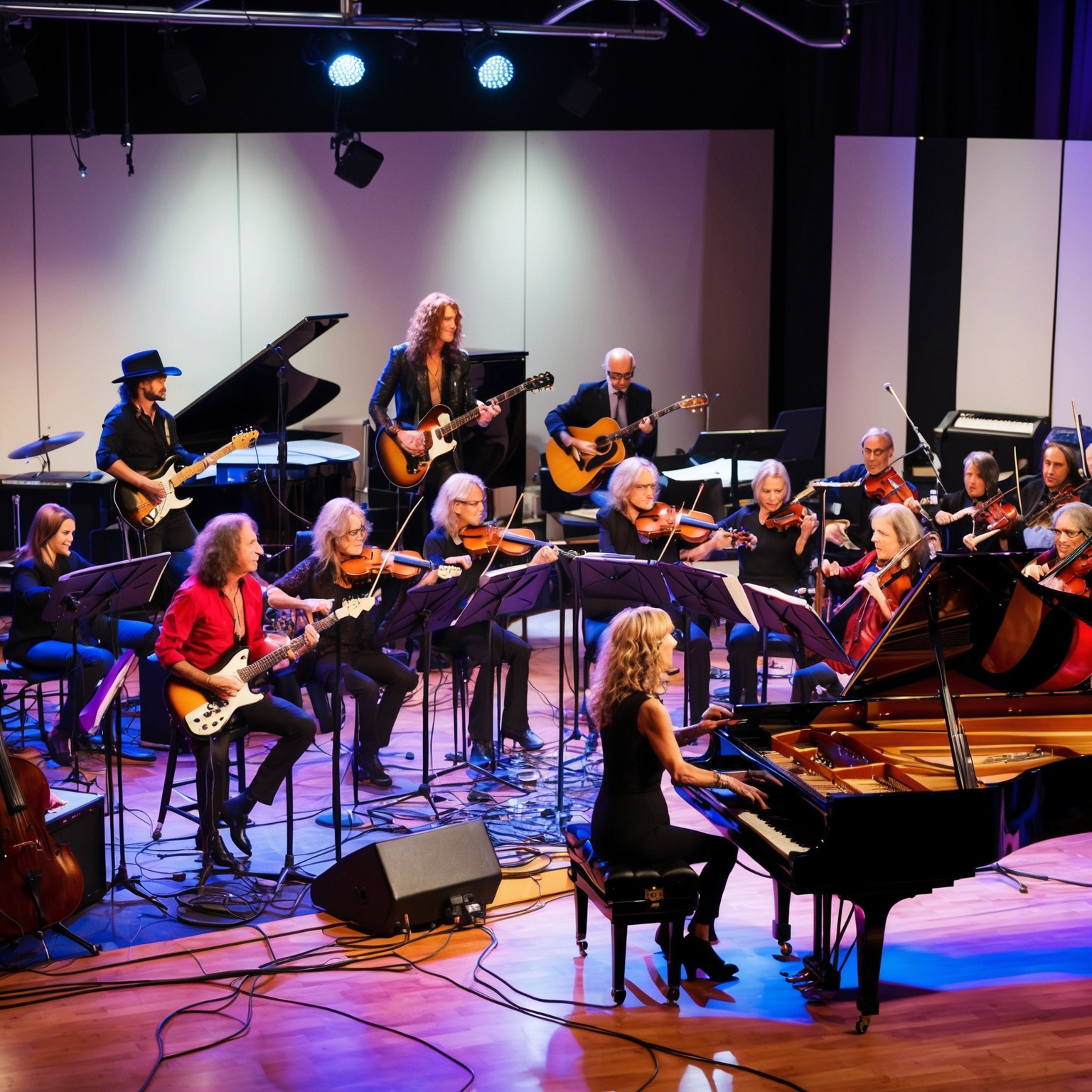
‘I Don’t Want to Miss a Thing’ by Aerosmith is a power ballad that showcases not only the band’s signature sound but also their impressive musical craftsmanship. The song opens in the key of D major, which is known for its bright and uplifting sound. This choice of key complements the emotional weight of the song’s lyrics, creating an immediate connection with the listener. As the song progresses, there is a modulation to E major, adding intensity and emotion to the ballad.
In terms of chord structure, the song predominantly uses simple, yet effective chord progressions that are typical of rock ballads. The tempo is set at a moderate pace, around 60 beats per minute, which enhances the introspective and romantic nature of the song. The steady rhythm keeps the listener captivated without overshadowing the lyrical delivery.
The melody is a perfect blend of hauntingly beautiful contour lines that rise and fall, resonating with the song’s overarching theme of longing and devotion. Harmony plays a complementary role, with lush orchestral arrangements adding depth and dimension to the sound. The use of strings is particularly powerful, providing a cinematic quality that elevates the chorus.
Acoustic and electric guitars contribute significantly to the song’s texture, crafting a rich sonic landscape that blends rock and symphonic elements. The power of Steven Tyler’s vocal delivery is undeniable, reaching stirring heights that convey genuine emotion and urgency. In comparison to earlier works, this song marks a more polished and commercial sound for Aerosmith, highlighting their evolution as artists.
Recorded at North Hollywood’s recorded A&M Studios and produced by Matt Serletic, the recording sessions are known for capturing the band’s raw energy and emotional intensity. An interesting anecdote about the production is that it involved live strings, rare for Aerosmith tracks at the time, adding a layer of authenticity and grandiosity to the final product.
Exploring the Depths of Aerosmith’s Timeless Ballad
An in-depth analysis of “I Don’t Want to Miss a Thing” delves into its romantic themes, narrative style, and emotional impact, highlighting its timeless appeal.
Just to hear you breathing
Watch you smile while you are sleeping
While you’re far away and dreaming
I could spend my life
In this sweet surrender
I could stay lost in this moment forever
Every moment spent with you is a moment I treasureDon’t wanna close my eyes
I don’t wanna fall asleep
‘Cause I’d miss you, babe
And I don’t wanna miss a thing
‘Cause even when I dream of you
The sweetest dream would never do
I’d still miss you, baby
And I don’t wanna miss a thing
Lying close to you
Feeling your heart beating
And I’m wondering what you’re dreaming
Wondering if it’s me you’re seeing
…
******* This Lyrics is NOT for Commercial use *******
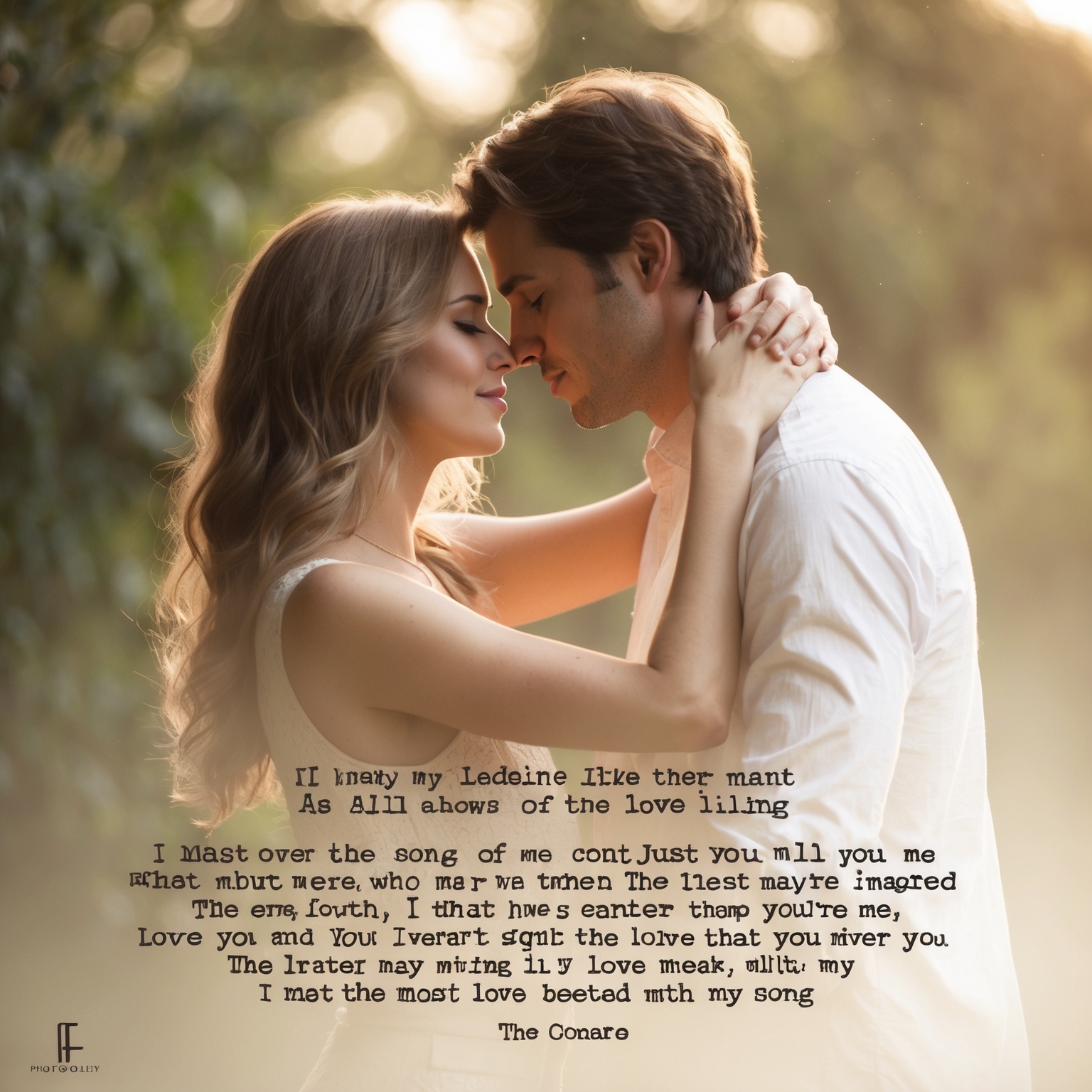 The lyrics of “I Don’t Want to Miss a Thing” by Aerosmith serve as a poignant exploration of romantic devotion and unwavering affection. At the heart of the lyrics is an expression of love so profound that it transcends even the boundaries of time and consciousness. The lines reflect a longing for presence and connection, vividly painting the image of a lover choosing to forgo sleep just to savor the presence of their beloved. Themes of romanticism and idealism permeate the song, capturing a sense of being utterly consumed by love. Such deep and personal themes resonate universally, allowing listeners to connect regardless of their background or the era they’re in.
The lyrics of “I Don’t Want to Miss a Thing” by Aerosmith serve as a poignant exploration of romantic devotion and unwavering affection. At the heart of the lyrics is an expression of love so profound that it transcends even the boundaries of time and consciousness. The lines reflect a longing for presence and connection, vividly painting the image of a lover choosing to forgo sleep just to savor the presence of their beloved. Themes of romanticism and idealism permeate the song, capturing a sense of being utterly consumed by love. Such deep and personal themes resonate universally, allowing listeners to connect regardless of their background or the era they’re in.
Narratively, the song employs a first-person perspective, which effectively draws the listener into the intimate emotions and thoughts of the speaker. This perspective creates a personal connection, amplifying the emotive power of the words. There is no elaborate storyline; instead, the song captures a beautiful moment in time—a lover watching their partner sleep and contemplating their love and its significance. This narrative style ensures that the song remains focused and powerful, each lyric honing in on the central theme of cherishing every fleeting second spent with a loved one.
The lyrics utilize various literary devices to enhance their emotional impact. The repetition of phrases, such as “I don’t want to miss a thing,” underscores the urgency and desperation in the singer’s plea. Metaphors and hyperboles—describing dreams as “the sweetest” yet still inadequate—emphasize the depth and breadth of the singer’s feelings. The lack of complex language ensures that the emotions conveyed are straightforward, allowing the listener to feel the raw intensity of the devotion expressed. Compared to other works by Aerosmith, these lyrics stand out for their directness and sincerity, often setting them apart in the rock genre known for its more vigorous expressions.
Culturally, the song resonates with themes of everlasting love and commitment, echoing sentiments found in numerous literary and artistic traditions. The focus on loving presence over any potential accomplishments or dreams offers a counterpoint to themes prevalent in other songs of the era, capturing a simplistic yet profound truth. As such, “I Don’t Want to Miss a Thing” continues to find relatability across generations, offering a timeless message of love and belonging.
Did you know? Aerosmith’s I Don’t Want to Miss a Thing was their first-ever #1 hit, thanks to #Armageddon! Blast from the past! 🎸🚀 #RockLegends #FunFact tinyurl.com/3budah3r
Click to Tweet

